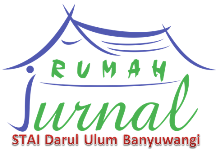Analisis Implementasi Tabarru’ Dan Ta’awun Dalam Pelayanan Kesehatan Ditinjau Dari Perspekti Ekonomi Islam (studi kasus pada: klinik asuransi sampah indonesia medika, kab. Malang)
Keywords:
Tabarru', Ta'awun, Health Care, Clinical, Garbage Clinical Insurance, Health Insurance
Abstract
Health and natural resources are blessing given by God to mankind. It is the duty of every man to always be grateful and keep the health and environmental sustainability. The problem, managing garbage or the difficultaccess of carying health for the poor, is a social problem that requires serious treatments. Indonesian Medika by Garbage Clinical Insurance program tries to address both of these problems simultaneously. The Garbage Insurance Clinic is a health insurance program with waste or garbage premium as a financial source.The research was conducted to determine the background of the establishment of the Garbage Clinical Insurance program; analyzing whether that program has contained implementation tabarru' and ta'awun in accordance with Islamic law; analyzing the benefits gained by the members of Garbage Insurance, and analyzing the success of this program in improving environmental health. The method used in this research is descriptive qualitative. Taking sample uses purposive sampling method, the determination of the sample with certain considerations. The number of samples used a number of 53 respondents from 236 members of that Garbage Insurance. Collecting data is through observations, questionnaires, interviews, and literatures. Interpretation of the data was done by using descriptive analysis. Discussion of the research results was conducted by reviewing the research results critically with relevant theory and accurate information obtained in the field.The results of this research indicated that the establishment of the background of this program was to answer the social problems which are still not optimal garbage management efforts and the lack of health service access for the poor. That program has contained tabarru’ and ta'awun implementation in accordance with Islamic values, effort to help people who have difficulties to get health service, helping one another between Indonesia Medika with members of the Garbage Insurance running this program. Benefits earned by members of Garbage Clinical Insurance include benefits in health, economic, and environmental hygiene, the form of free health services, additional information on health, so the environment becomes more clear. Garbage Clinical Insurance program has not given a significant influence on the improvement of environmental health around the residence of its members, due to the lack of public awareness of clean and healthy lifestyle, lack of garbage collection intensity, and the absence of garbage collection services to the members.
Published
2015-12-20
How to Cite
Analisis Implementasi Tabarru’ Dan Ta’awun Dalam Pelayanan Kesehatan Ditinjau Dari Perspekti Ekonomi Islam (studi kasus pada: klinik asuransi sampah indonesia medika, kab. Malang). (2015). Economic: Journal of Economic and Islamic Law, 5(2), 55-80. Retrieved from https://ejournal.kopertais4.or.id/tapalkuda/index.php/economic/article/view/948
Section
Articles
Authors who publish with this journal agree to the following terms:
- Authors retain copyright and grant the journal right of first publication with the work simultaneously licensed under a Creative Commons Attribution License that allows others to share the work with an acknowledgement of the work's authorship and initial publication in this journal.
- Authors are able to enter into separate, additional contractual arrangements for the non-exclusive distribution of the journal's published version of the work (e.g., post it to an institutional repository or publish it in a book), with an acknowledgement of its initial publication in this journal.
- Authors are permitted and encouraged to post their work online (e.g., in institutional repositories or on their website) prior to and during the submission process, as it can lead to productive exchanges, as well as earlier and greater citation of published work (See The Effect of Open Access).






